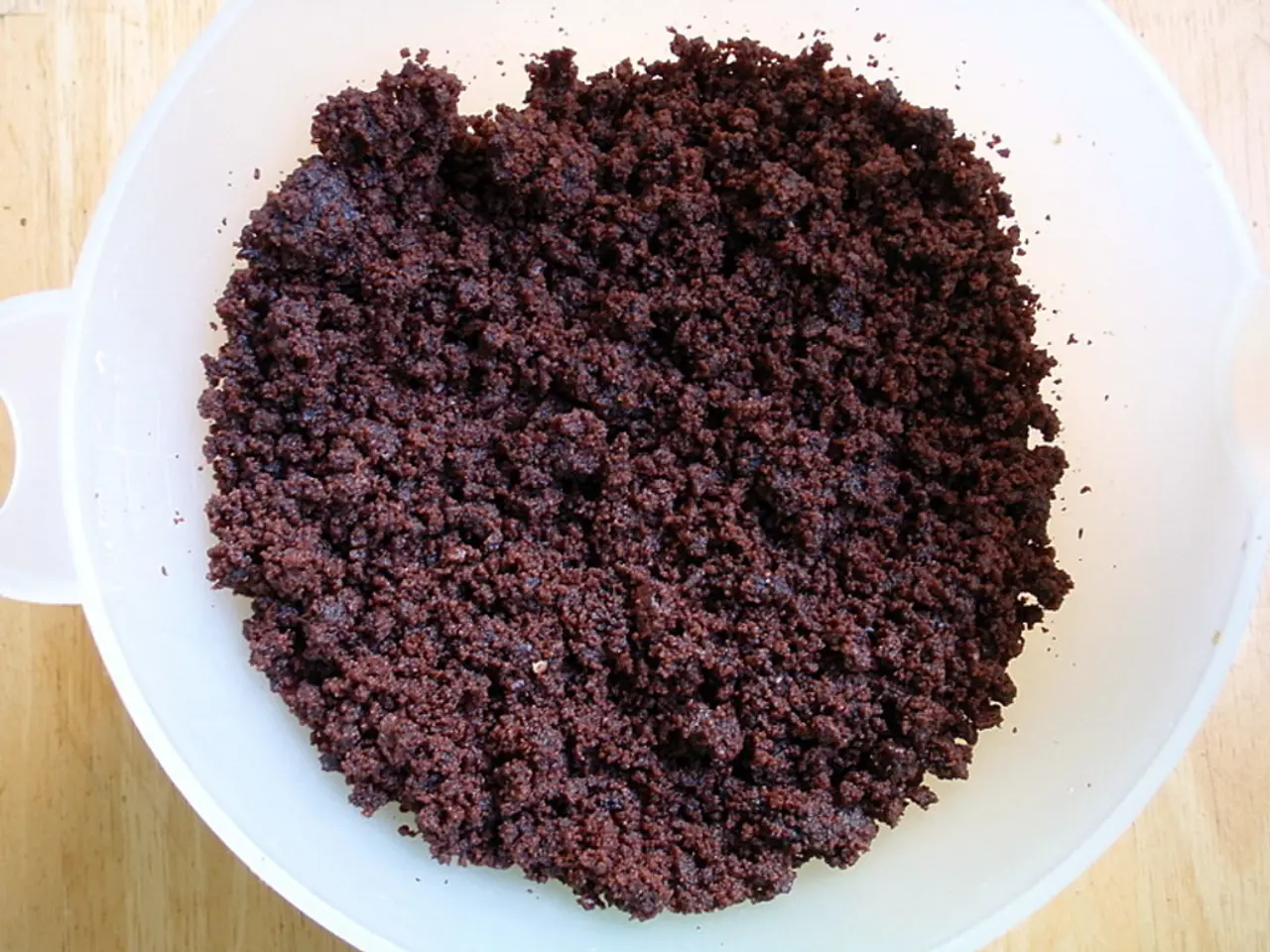Impact of intestinal microbes on ulcerative colitis: a closer look
Ulcerative colitis (UC), a chronic inflammatory bowel disease, has long been a subject of medical research, with the gut microbiome emerging as a key player in both its development and treatment.
In the development of UC, an imbalance in the gut microbiome, known as dysbiosis, is commonly found. This imbalance often involves fewer beneficial microbes such as *Bifidobacterium* and *Lactobacillus* and more potentially harmful bacteria. This imbalance can lead to reduced production of short-chain fatty acids, which are essential for maintaining intestinal barrier integrity and regulating immune responses. The compromised intestinal barrier allows bacterial byproducts and other molecules to pass through, triggering inflammation and immune overreaction.
The gut microbiome also influences metabolic pathways and immune responses, affecting the activity of immune cells and the inflammatory response in UC. This metabolic and immune modulation contributes to the inflammation seen in UC.
In the treatment of UC, promising avenues are being explored. Certain treatments that target gut bacteria, such as antibiotics, probiotics, and Fecal Microbiota Transplantation (FMT), have shown some promise in reducing symptoms of UC.
Probiotics, live bacteria and other microbes that may provide health benefits, can help restore the balance of the gut microbiome by introducing beneficial bacteria. These beneficial bacteria may reduce inflammation and improve symptoms in UC. They work by suppressing proinflammatory cytokines and enhancing anti-inflammatory mediators.
Certain metabolites produced by the gut microbiota, such as butyrate, acetate, propionate, and equol, have been shown to exert beneficial effects on UC. These metabolites can interact with multiple targets and pathways to modulate inflammation and immune responses.
The use of gut microbiota metabolites and probiotics highlights the potential for microbiome-based therapies in managing UC, offering a promising avenue for treatment beyond traditional pharmaceuticals.
However, it is important to note that while FMT shows potential, it remains an experimental treatment for UC and should only be used in the context of a clinical trial. Antibiotics, while beneficial in the short term, can become less effective over time due to bacterial resistance and can kill both harmful and healthful bacteria.
In terms of diet, while dietary changes play a major role in shaping the microbiome, more research is needed to understand the effects of diet on UC symptoms and rates of remission. Currently, there is not enough evidence to support one particular diet for UC.
As research continues, experts hope to identify specific types of probiotics that benefit people with UC, develop new medications based on anti-inflammatory molecules produced by bacteria, and design targeted therapies that kill disease-causing bacteria. Evaluating the potential benefits and risks of these treatments will require further research.
The American Gastroenterological Association advises doctors to prescribe one or more medications to treat UC. A specific probiotic blend containing multiple strains of Lactobacilli, Bifidobacteria, and Streptococcus salivarius has been found to be more likely to cause remission than a placebo, and is sold under the brand names VSL#3 and Visbiome.
In conclusion, the gut microbiome is central to both the pathogenesis and potential therapeutic strategies for ulcerative colitis, emphasizing the importance of maintaining a balanced gut microbiota to manage this condition effectively.
- The imbalance in the gut microbiome, known as dysbiosis, involves fewer beneficial microbes like Bifidobacterium and Lactobacillus in individuals with ulcerative colitis (UC).
- This imbalance can lead to reduced production of short-chain fatty acids, essential for maintaining intestinal barrier integrity and regulating immune responses.
- The compromised intestinal barrier allows bacterial byproducts and other molecules to pass through, triggering inflammation and immune overreaction in UC.
- The gut microbiome influences metabolic pathways and immune responses, affecting the activity of immune cells and the inflammatory response in UC.
- In the treatment of UC, antibiotics, probiotics, and Fecal Microbiota Transplantation (FMT) have shown some promise in reducing symptoms.
- Probiotics can help restore the balance of the gut microbiome by introducing beneficial bacteria, potentially reducing inflammation and improving symptoms of UC.
- Certain metabolites produced by the gut microbiota, such as butyrate, acetate, propionate, and equol, have shown beneficial effects on UC.
- The American Gastroenterological Association advises doctors to prescribe one or more medications to treat UC, with a specific probiotic blend containing multiple strains of Lactobacilli, Bifidobacteria, and Streptococcus salivarius having a higher likelihood of causing remission.
- The use of gut microbiota metabolites and probiotics highlights the potential for microbiome-based therapies in managing UC.
- While FMT shows potential, it remains an experimental treatment for UC and should only be used in the context of a clinical trial.
- Antibiotics, while beneficial in the short term, can become less effective over time due to bacterial resistance and can kill both harmful and healthful bacteria.
- More research is needed to understand the effects of diet on UC symptoms and rates of remission, despite dietary changes playing a major role in shaping the microbiome.
- Experts hope to identify specific types of probiotics that benefit people with UC, develop new medications based on anti-inflammatory molecules produced by bacteria, and design targeted therapies that kill disease-causing bacteria.
- The development of new treatments will require further research to evaluate potential benefits and risks.
- Maintaining a balanced gut microbiota is crucial for managing ulcerative colitis effectively.
- Science continues to explore the potential connections between the gut microbiome and chronic diseases like cancer, chronic kidney disease, and respiratory conditions, as well as chronic diseases related to digestive health, eye health, hearing, health and wellness, fitness and exercise, Alzheimer's disease, autoimmune disorders, mental health, skin care, and neurological disorders.
- Skin conditions like psoriasis can also be associated with changes in the gut microbiome, highlighting the broader impact of the microbiome on diverse health and wellness aspects.
- Nutrition, cardiovascular health, and the management of medical conditions such as nutrition, cardiovascular health, and neurological disorders play a vital role in overall health and wellness, with the gut microbiome playing a significant role in these areas.




